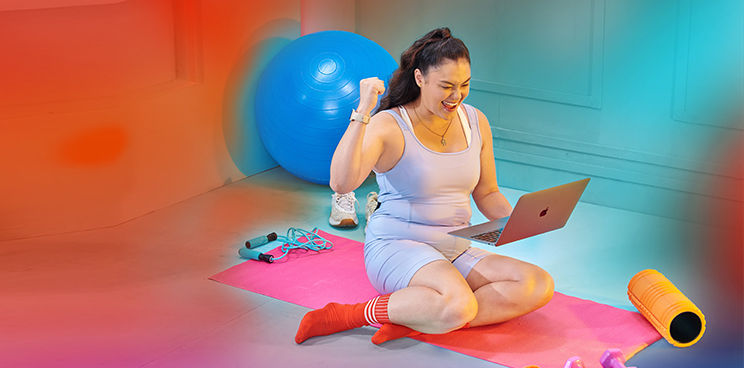Getting your finances in shape doesn’t have to be intimidating. Just like routine health check-ups keep you physically fit, financial check-ups help you stay on track with your money. Understanding what affects your financial health and taking the right steps can build resilience and lead to financial freedom.
In the pilot episode of The Flex Series, real-life doctor Kara Gozali and financial fitness rookie Issa share three key “health tests” to check your financial well-being and practical ways to improve it.
🎯 Vision Test: Setting Financial Goals 🎯
A vision test checks your eyesight, and setting financial goals does the same for your finances. Without clear goals, it’s easy to feel lost or aimless with money decisions. Defining specific and realistic goals helps guide your spending and savings habits. Here’s how you can sharpen your financial vision:
- Set clear goals: Identify what you want to achieve—paying off debt, saving for a big purchase, or building an emergency fund. These goals provide direction and keep you motivated.
- Break it down: Divide large goals into smaller, manageable tasks. For example, if you aim to save Php 50,000 for an emergency fund, start with Php 5,000 increments. You’ll reach your goal before you know it!
- Adjust as needed: Revisit your goals regularly and tweak them based on your circumstances. Flexibility helps keep you on track.
Check out some top millennial financial goals on NEXT by BPI Preferred’s The Program.
🥧 Budget Breathe Test: Managing Spending 🥧
Check how well your finances “breathe.” If spending feels suffocating and there’s no money left at the end of the month, your financial health is strained. A well-balanced budget provides room to breathe. Here are some tips to improve your budget breathing:
- Make a practical budget: Track expenses and cut back on non-essentials. A budget acts as a breathing exercise for your finances, maintaining balance.
- Prioritize must-haves: Cover essentials first—such as rent and utilities—to avoid financial “asthma.” Once the basics are covered, allocate funds for savings and discretionary spending.
- Review regularly: Adjust your budget monthly to keep it in line with your goals and changing needs.
Want to know more about budgeting? Read “3 Ways to Budget Like a Boss” on The Program.
🚨 Stress Test: Financial Capability 🚨
Can your finances handle unexpected expenses? Your finances need to handle emergencies such as medical expenses or job loss. Here are a few steps to make sure your finances can weather any stress:
- Build an emergency fund: Save 3-6 months' worth of living expenses to cushion against financial shocks. This fund serves as a financial safety net.
- Automate savings: Set up automatic transfers to your emergency account to make saving effortless and consistent.
- Trim extra costs: Cut back on luxuries and funnel the savings into your emergency fund to improve financial resilience.
Financial health requires consistent effort, just like physical fitness. By setting clear goals (vision test), managing spending (budget breathe test), and preparing for emergencies (stress test), you can achieve financial stability and peace of mind. Start small, stay committed, and let your financial health thrive.
Did you enjoy reading this article? Head to NEXT by BPI Preferred’s The Program to read more financial education content. Go to BPI’s YouTube page to watch The Flex Series.




